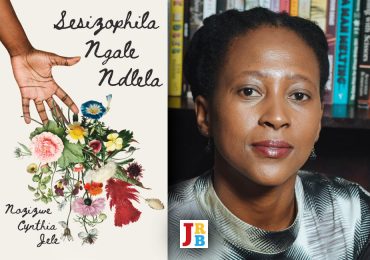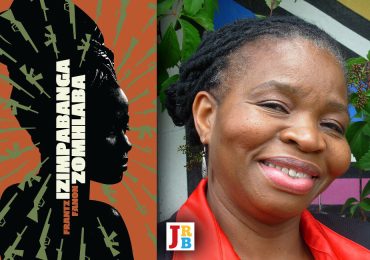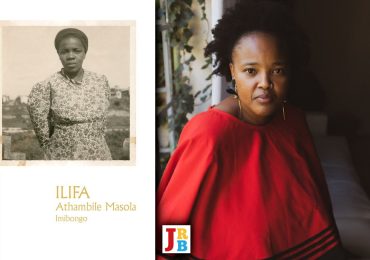In The JRB Fiction Issue this year, we are delighted to feature two short stories by Koos Prinsloo, published for the first time in English, translated from the Afrikaans by award-winning author and translator Michiel Heyns.
Prinsloo was an Afrikaans journalist and author, known for his autobiographical, postmodern writing. He was born in Kenya in 1957, and moved to to South Africa with his parents in 1962. His debut collection of short stories, Jonkmanskas, was published in 1982. Prinsloo’s work was often controversial: in 1988 his collection Die hemel help ons was adjudged the winner of the Rapport Prize, but he was never officially given the award, as a sentence in one of the stories was viewed as disrespectful to then-president PW Botha.
Prinsloo died on 4 March 1994, aged just thirty-six, from Aids-related causes. His books Jonkmanskas, Die hemel help ons, Slagplaas and Weifeling were published as a combined volume, Verhale, in 2008.
The two stories published in this issue of The JRB, ‘The Story of My Cousin’ ‘The Story of My Father’, are significant because they are among the first fictional texts about HIV/Aids in South African literature.
- Read Lizzy Attree on the significance of the stories here
- Read The Story of My Cousin here
~~~
The Story of My Father
After a long silence, all of a sudden, there is a phone call from my father, but the answering machine has clicked in already, because my lover and I are on our way out to celebrate our first meeting, two years ago.
‘Fourohdoubletwosixtwooh,’ the message announces somewhat nasally but high spiritedly from the grey answering machine into the cool air of the entrance lobby with the high ceiling. ‘By all means leave a message after the beep.’
Outside the May wind is blowing the last leaves from the trees.
‘Hello, Brother, this is Pappa. We’re missing you a bit. Just wanted to hear how you are. Bye.’ When I replay his message again and again the next day, I do actually pick up a slight melancholy, but right now it doesn’t sound all that urgent, and as I’ve said, my lover and I are intent on celebrating our eventful meeting two years ago. We take in a movie and eat and drink and buy flowers and even have a little late-night tiff. But we laugh and talk as well and my lover—oh, my lover!—him I tell the story of my father.
Look, my father is one of a twin, and this sister was, till they were teenagers, physically (and perhaps also in other respects?) slightly ahead of him. For which reason, when they were small, he always wanted to shove her all the way over the rainbow.
But in actual fact it’s quite a sad story, because at their birth my grandmother already had her hands fuller than full as it was. (Oh, how my lover laughs, laughs and laughs, because ‘You know you’re sounding just like your father.’) Eighteen months before their birth my grandmother had had a child, a daughter, with ‘falling sickness’, to use my father’s words. And falling sickness is no joke, says my father, especially back then.
‘Yeee-es,’ my mother sighs, ‘back in those days medicines were few and far between.’
It’s always here where my mother gets a word in edgeways, right into the heart of the story of my father: ‘Yes, you see. Granny went and bathed the child in boiling water, then she got the fits, that’s where it all started.’ (Laughs and laughs my lover, because ‘See, now you’re sounding for all the world like your mother.’)
My father still says—and my granny’s been dead for ten years—that my granny, with her hands being so full with the child with the falling sickness and all, hadn’t really ever wanted him and his sister.
Not that it was an uninterrupted silence, this silence for the last two years between me and my father. This very year I phoned on my father’s birthday to wish him well. From his voice I could tell he was feeling as usual oh so pitifully, oh so terribly, pitiably, sorry for himself. (‘Somewhere between a thundercloud and the hurt lover,’ I explain to my lover. And just see him laugh, my lover, he laughs at me and my family. He finds us ever so funny.)
They celebrated his birthday at my sister’s. Only got home late because he doesn’t see all that well and so drives slowly at night.
‘But doesn’t Pa wear Pa’s glasses?’
‘What! If I had an accident, I’d lose my eyes!’ yells and shouts my poor, poor, oh ever so rejected, ever so done-in, oh done-down and woebegone unto death, poor doddering fucking old pa.
When, two weeks after my father’s birthday, I phone again to hear how things are, also with my cousin, my father says: ‘But Bennie died last month already.’
I replay the message on the answering machine once again before phoning back the next day.
My father gets to the point. He’s had a dream. ‘We’re in the workshop next door. You and I and Granny. I tell you to hand me the shifting, but you’re still small, and you search and you search and get flustered and you run over there to the … Don’t be scared of me …’ my father’s voice breaks unexpectedly through my ear. He gasps for breath: ‘Please don’t be scared of me,’ he weeps and screams and pleads. ‘I did it all from love …’
My father’s voice settles in my stomach. Slowly but surely he breaks my heart. I listen to his sobs over the phone, listen how he, halting and gulping, tries to calm himself.
‘The other day I was saying to your other cousin, when you were little and Doctor Hansie le Grange, yes, the one with the Boere band, thought you had leukaemia, I said to the Lord, if you die, I’ll do away with myself. Please understand me well, I’m not threatening you. As I said to your cousin, it was because I challenged the Lord that He’s punishing me now. You probably have a different way of thinking about these things, but that’s what I believe.
‘Ag, in my dream you’re so small,’ my father tells me, and he gets all emotional again. ‘And you get more and more flustered when you can’t find the spanner. Later you’re over there against the wall next to the shelves where you get hold of two little planks and offer them to me like a little book.’
He cried himself awake from the dream, says my father, ‘and immediately told Mamma. It was she who said I should phone you.’
‘Thank you for your dream,’ I say.
‘Ah,’ says my father, ‘now I feel a whole lot better.’
Well, is there ever a surprise in store for him.
I would be able to write my father a letter: ‘Dear Pa, for all of the last eighteen years I’ve been rewiring my heart and my head so as not to be afraid of you anymore. And, strangely enough, of late I’m not anymore. Or hardly. (Does one ever manage it completely?) But, you self-obsessed bastard, have you ever sat down and wondered why my sisters and I have ever since infancy trembled in our traces?’
What I would not disclose in this letter is how my lover and I at the end of an oh-so-dismal Workers’ Day, two years ago, met in the blissful penumbral passages of the steam baths, how we fucked three times that first delirious drunken-dark night, how he, only after ten whole days, left a sunflower and his phone number on my doorstep and how we then little-by-little shuffle-and-scuffle only after months started yielding to each other.
Of our anniversary I do tell my father on the phone, and slowly but surely I hear his hmms and hahs starting to falter. Halfway through my account he says rudely: ‘Here’s your mother.’
What I won’t tell him is that my lover and I nowadays fuck much less often, what with the thrush in my mouth and the fever blisters in my hole and the never-ending squitter-shitting and the oh-so-rare little cancers.
That, my dear Pappa, I’m saving up for later.
(PS. While replaying my father’s message on the answering machine again and again, I remember something about the story of my father that I forgot to tell my lover the night before: Only at sixteen—yes, he’d been taken out of school by then—did my father stop trotting, but walking like a normal person when my grandfather ordered him to fetch something.)





10 thoughts on “[Fiction issue] ‘The Story of My Father’ by Koos Prinsloo, newly translated by Michiel Heyns”